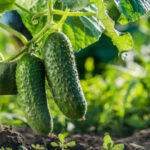Although the inflammatory bowel disease of Crohn’s disease cannot be cured by diet, it can be positively influenced. It is important to compensate for deficits in nutrients, minerals, and vitamins. With which foods or supplements does this work?
Crohn’s disease belongs to the group of chronic inflammatory bowel diseases. The end of the small intestine or the upper part of the large intestine is usually affected. The intestinal mucosa becomes inflamed for reasons that are still unclear, but deeper regions of the intestine are also affected. There is severe diarrhea. Therefore, nutrition in Crohn’s disease is also a component of comprehensive therapies.
Patients lose a lot of fluids but also lose weight because many nutrients and vitamins are not absorbed. Deficiency symptoms are often the result. According to studies, this primarily affects iron, potassium, calcium, magnesium, vitamin B12, vitamin D, and folic acid. In addition, too few calories are absorbed from food.
What do doctors do in an acute attack?
If the flare-up is severe, doctors will feed patients either parenterally (through special solutions that enter the body through blood vessels) or enterally (through special solutions that are put through a tube into the gastrointestinal tract). In lighter cases, drinking bottles are also suitable. The aim is, on the one hand, to protect the intestines and, on the other hand, to supply the body with calories and micronutrients.
Meal plan for Crohn’s disease in the symptom-free period
So far there is no scientific evidence for a special Crohn’s disease diet. Nevertheless, diet plays a major role in patients. In symptom-free times, a menu for Crohn’s disease, which mainly consists of light whole foods, helps. It contains 55 percent carbohydrates, 30 percent fat, and 15 percent protein (proteins). This includes low-fat meat and sausages, but also dairy products if there is no lactose intolerance.
Steamed vegetables and potatoes are possible in many cases. Fresh, mild herbs such as oregano or basil make the dishes tasty. There is at least evidence that turmeric (Curcuma) has a positive effect on the intestines. Hot spices can be irritating. It’s better to avoid that.
Many types of fruit are well tolerated. When it comes to berries, you should switch to puree without seeds. And be careful with fiber. Although these food components promote intestinal function, they are not always well tolerated. Still, mineral water, diluted fruit juices, and tea or coffee that is not too strong are suitable as drinks.
What role does a vegetarian diet play in Crohn’s disease?
Scientists report on a patient whose Crohn’s disease could no longer be controlled with drugs. He completely abstained from animal foods. His diet focused on fruits, vegetables, whole grains, and legumes. The disease disappeared completely; Doctors speak of remission. Case reports provide important clues, but cannot be generalized. After consultation with the doctor, it is still worth trying.
Also, which foods should you avoid if you have Crohn’s disease?
High-fat foods, such as breaded or fried foods, are poorly tolerated in intestinal disease. Sweets with high-fat content are also better left out of the diet. And experience has shown that patients do not tolerate flatulent vegetables, including onions, and various types of cabbage, but also legumes. This also applies to sugar, bread, and pasta. In some patients, this makes inflammation worse. And stone or pome fruit such as peaches, nectarines, and plums should only rarely be on the menu. The symptoms of Crohn’s disease patients can improve with the right diet.



